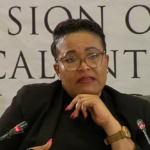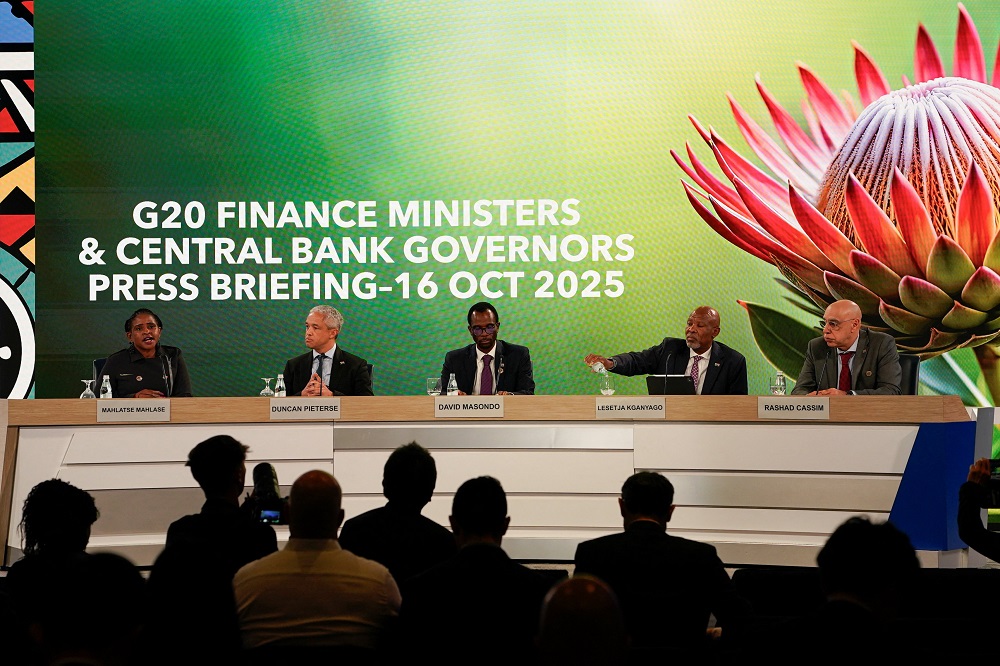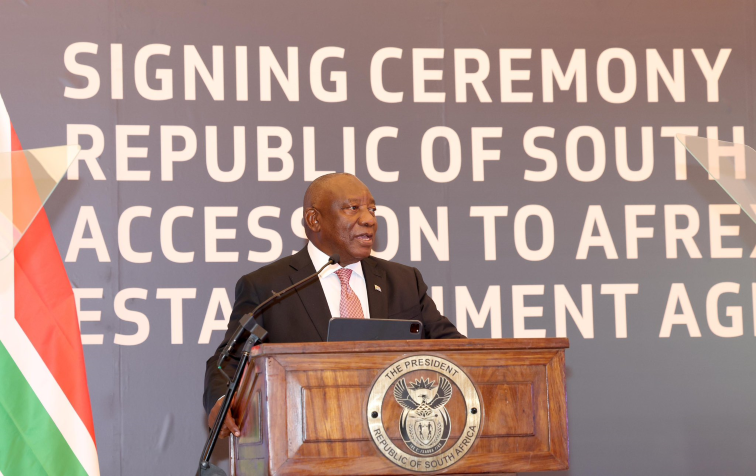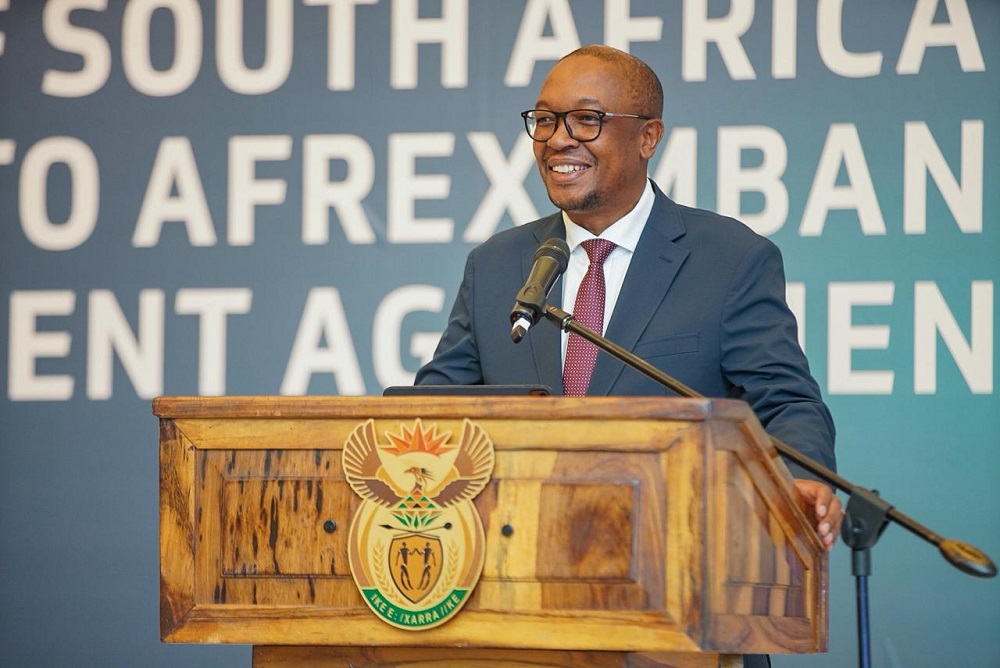-
Content Hub Manager of South African Reserve Bank Mahlatse Mahlase, Director-General of the National Treasury of South Africa Duncan Pieterse, South Africa’s Deputy Minister of Finance David Masondo, South Africa’s Reserve Bank Governor Lesetja Kganyago, and Deputy Governor of the South African Reserve Bank Rashad Cassim attend a G-20 press briefing at the IMF/World Bank 2025 Annual Meetings in Washington, D.C., U.S., October 16, 2025.
G20 Finance Ministers and Central Bank Governors have agreed to launch the G20 Africa Engagement Framework – a multi-year initiative that builds on past G20 work to address growth and development on the continent.
The fourth meeting of the group during South Africa’s Presidency of the G20 was held on the sidelines of the IMF/World Bank meetings in Washington D.C. in the United States.
The Chair’s summary of the meeting pointed to constructive discussions on the global economic outlook, macroeconomic stability and reforming the international financial architecture within the context of achieving sustainable development.
G20 Finance Ministers and Central Bank Governors endorsed the launch of the 2025-2030 G20 Finance Track Africa Engagement Framework to support efforts of the African continent to achieve their economic, financial and related objectives.
South Africa’s Deputy Finance Minister David Masondo chaired the meeting. “This framework strives to ensure consistent engagement by the G20 with key impediments to growth and development in Africa for the next five years. It complements existing G20 initiatives such as the Compact with Africa.”
The meeting reaffirmed the critical role of Multilateral Development Banks and roadmap to make them bigger, better and more effective; adopted a G20 declaration on debt that aims to improve debt sustainability which seeks to enhance the agency of borrowers; agreed to focus on addressing impediments to scaling up private investment in infrastructure while advancing discussions on artificial intelligence from both a regulatory and macroeconomic perspective.
Masondo added, “There’s broad agreement that further work needs to be done. Our financial sector discussions highlighted both the transformative potential and the risks associated with innovation and AI. Cross-border payments were a key priority this year, and we have collectively reaffirmed our commitment to the effective implementation of the G20 roadmap to enhance cross-border payments, as well as appropriate further actions as necessary to deliver the roadmap targets. Indeed, we are slowly making progress towards the quest for cheaper, faster, more transparent and inclusive payments, particularly in sub-Saharan Africa.”
The panel was also asked about efforts to address credit ratings agency biases that often raise borrowing costs for African countries, with South Africa’s Reserve Bank Governor Lesetja Kganyago arguing for greater data and methodology transparency that would allow the borrower to evaluate and challenge the Agency’s findings.
“If you were to look at South Africa now and you look at the reports of the rating agencies when they downgraded South Africa in 2017 and 2020, their trajectory was that debt to GDP in South Africa will reach 84% and 94% in the case of one agency said that we might actually reach 100%. Eight years later, we are at 76%. So, they were wrong. So, you need to be able to engage with them on that basis. Now, not all countries, especially developing countries, have got the ability to take the methodology of the rating agencies, test its robustness, and confront the rating agencies with the data. And I can tell you that we are incapable of saying, based on your methodology and the data that we have, your rating is wrong- this is what we think our rating should actually be, and that is the power that the borrowers actually need. Now, for many of the developing countries, they would not have that ability. And important here would be to build the capacity of the borrowers to be able to engage in that manner,” Kganyago explained.
He was also asked about efforts within South Africa to protect consumers from the growing scourge of digital hacking and pointed to reporting mechanisms to share and learn about cybersecurity incidents, but warned that mitigation would come down to individual companies and consumers.
Kganyago added, “There will be a hack. The question is, when it happens, how quickly are you able to respond to that? And I’m saying this decidedly because they had been advanced economy agencies that had been hacked. So, that is what you are going to be faced with. And on the consumer side, it is also very important that consumers are actually informed and equipped to be able to engage, because in many respects, it is not so much that the institution got hacked, it is because the consumer didn’t know what was the right thing to do when approached or tricked into some vulnerability.”
The meeting also expressed a view that the global economy had shown resilience in the first half of 2025 despite facing continued elevated uncertainty and complex challenges.
These include ongoing wars and conflicts, geopolitical and trade tensions, disruptions to global supply chains, high debt levels, and frequent extreme weather events and natural disasters – factors that these G20 stakeholders caution may pose downside risks to growth and could raise risks to financial and price stability moving forward.
The G20 Leaders Summit will be held in Johannesburg from the 22nd to the 23rd of November.











